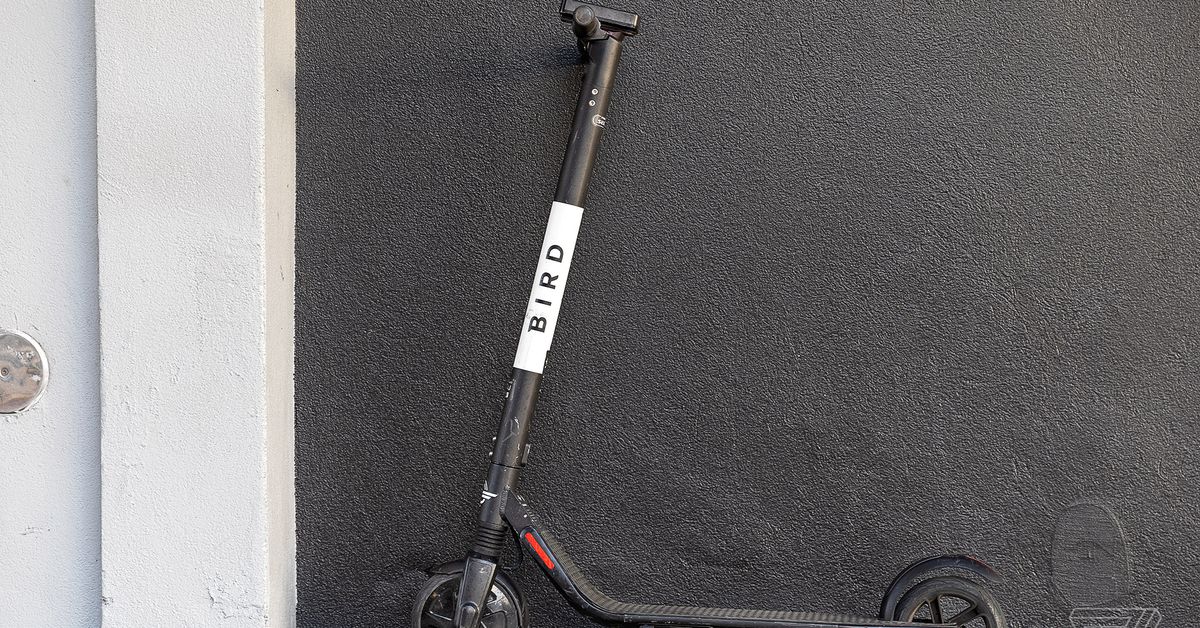
There’s a dispute over which companies received federal bailout money.
Bird, the scooter sharing company, received a loan worth between $5 million and $10 million from the federal government’s Paycheck Protection Program (PPP) in late April, according to a list of thousands of companies released Monday. The company said in its application to the Treasury Department and the Small Business Association that the loan would help it retain 341 jobs. But less than a month before, Bird laid off over 400 employees, or about 30 percent of its staff.
But Bird contends that it should not be included in the government’s list. “Bird was erroneously listed as a company that filed for a PPP Loan,” a company spokesperson said. “We did not apply for nor did we receive a PPP Loan. We decided as a company not to file an application as we did not want to divert critical funding from small and local businesses.”
Bird CEO Travis VanderZanden said in a tweet that the company discussed applying for a PPP loan with its bank, Citi, but ultimately never followed through on it.
Bird spoke with Citi early on, but decided not to apply for PPP b/c the money was more deserved by small and local businesses. Citi will confirm this. Not sure how we made the PPP list, but we're investigating. https://t.co/81HUJLKy4o
— Travis VanderZanden (@travisv) July 6, 2020
VanderZanden later wrote that Citi started an application while they waited for Bird to make a decision on whether to seek a loan. “We discussed internally and told Citi we didn’t want to apply via email on April 23rd,” he said. “They confirmed that the [temporary application] was cancelled that evening and never submitted.”
Late Monday, a spokesperson for Citi Bank confirmed that it never facilitated a loan application for Bird. “Citi has not funded a PPP loan for Bird,” the spokesperson said in a statement. “Citi will seek the assistance of the SBA to ensure that the agency’s data accurately reflects actual PPP lending.”
Bird isn’t alone. A handful of venture capital firms also denied receiving PPP loan money despite appearing in the government’s records. Andreessen Horowitz, Index Ventures, Foundation Capital, and Advent Capital Management all say they never sought bailout cash.
A spokesperson for SBA declined to comment on the discrepancies. On background, a senior administration official said that only companies that submitted applications through SBA’s Electronic Transmission (ETran) system by an approved lender appeared on the disclosure list. “If a lender did not cancel the loan in the ETran system, the loan is listed as part of today’s data disclosure,” the official said.
The Citi spokesperson declined to comment on whether the bank neglected to cancel Bird’s application.
Bird was among the names of companies that got small business loans over $150,000 released today by the Treasury Department after lawmakers pushed for greater transparency. In addition to the scooter startup, there are a number of prominent autonomous vehicle firms, LIDAR makers, and other “mobility” companies on the list.
- TuSimple, a self-driving trucking company with offices in the US and China, received a loan between $2 million and $5 million. The startup said in its application to the Treasury Department and the Small Business Association that the loan would help it retain 324 jobs.
- Luminar, an Orlando-based company that is making LIDAR laser sensors for Volvo, Toyota, and other automakers working on autonomous vehicles, got a loan between $5 million and $10 million to retain 341 jobs.
- Kodiak Robotics, a self-driving truck company that is currently delivering freight in Texas, got a loan in the range of $1 million to $2 million to save 87 jobs.
- Udelv, an autonomous delivery company that’s partnering with Walmart and Baidu, received a loan in the range of $350,000 to $1 million. (The company didn’t disclose how many jobs it would retain.)
- Optimus Ride, a Boston-based AV company with operations in Brooklyn and Northern Virginia, received a loan in the range of $2 million to $5 million to retain 159 jobs.
- Hyperloop Transportation Technologies, a California-based company that sprang up to deliver on Elon Musk’s 2013 transportation vision, received a loan in the range of $150,000 to $350,000 to retain 15 jobs.
- RideCell, an operations platform for ride-hailing companies, received a loan in the range of $2 million to $5 million to retain 246 jobs.
- Bolt Mobility, a micromobility company that offers a range of electric vehicles for rent, got a loan in the range of $350,000 to $1 million to save 18 jobs.
- Turo, a car-sharing company based in San Francisco, received a loan in the range of $5 million to $10 million. (The company didn’t disclose how many jobs it would retain.)
- May Mobility, an autonomous shuttle company based in Michigan, got a loan in the range of $1 million to $2 million to save 58 jobs.
- Velodyne, the top LIDAR manufacturer in the US, received a loan in the range of $5 million to $10 million to retain 450 jobs.
- LIDAR maker Aeye got a loan in the $2 million to $5 million range to save 85 jobs.
Update July 6th, 2:53PM ET: Updated to include statement from Bird.
Update July 7th, 10:18AM ET: Updated to include additional statements from Bird, and statements from Citi Bank and SBA.
"company" - Google News
July 07, 2020 at 02:51AM
https://ift.tt/2ZGgfah
The federal government says Bird got at least a $5 million bailout loan, but the company denies it - The Verge
"company" - Google News
https://ift.tt/33ZInFA
https://ift.tt/3fk35XJ
Bagikan Berita Ini















0 Response to "The federal government says Bird got at least a $5 million bailout loan, but the company denies it - The Verge"
Post a Comment